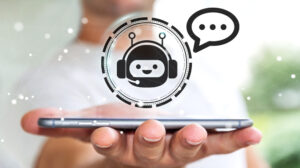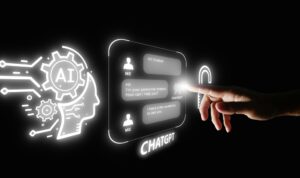AI (Artificial Intelligence) and the frontline have a complicated relationship. This is because when people hear about AI coming to the frontline, they immediately think that AI and automation will push deskless workers out of a job.
Where some employers are considering automating aspects of their frontline workforce, the reality is that, according to Boston Consulting Group, organizations that implement the 10-20-70 rule – where 10% is dedicated to algorithm designing, 20% is reserved for constructing underlying tech, and 70% goes into supporting the people who are transitioning to AI and adopting business practices – are the organizations that will get the most out of AI.
With a topic that can be as polarizing as AI, it is important to remember that AI is not a solution, it is a tool. A tool that can help empower your frontline–not replace it.
Throughout this article we will discuss how AI can fit into the frontline and how it can help elevate the existing workforce. Adjusting to the times and looking at AI innovations to empower frontline workers will be a key difference that separates the companies that get ahead versus the companies that get left behind.
Because the future of the frontline is not an automated one, it’s an intelligent one.
The Myth
It is understandable why workers on the frontline are apprehensive about the introduction of AI. The term has slowly turned into a buzzword with many deskless employees unsure of how the tech will affect their daily responsibilities. According to a survey conducted by the Boston Consulting Group, only 20% of frontline workers say that they regularly use AI, as opposed to the 80% of leaders that say they regularly use AI.
If managers want to begin introducing AI into their frontline it is imperative that they do it right. That includes talking directly to the frontline and being transparent about the ways AI will be implemented and proactively looking for ways to leverage AI to improve the experience of deskless workers.
How AI and the Frontline Go Hand in Hand
AI can and should be used to elevate your frontline.
For managers, AI will increase the scope of offerings and accommodations offered to their employees and provide managers greater visibility on key metrics. For example, AI can be used to monitor in real time how usage and employee engagement ebbs and flows and help managers address these patterns and create solutions to further empower their teams.
Companies can also leverage AI in the employee onboarding and training processes, providing employees with instant translations of key virtual documents and training materials, meaning that accommodations for potential language barriers will be at the ready for any employee that should need them. AI is also continuously monitoring various data points; tasks completed, employee productivity, employee engagement etc., meaning that the more an employee uses their workplace’s solution the more personalized their experience will become. Resulting in an experience tailor made for each employee based on their needs.
For workers, AI also can automate routine and mundane tasks, allowing them to focus on more complex tasks. For example, Chatbots are a great tool to introduce to your company’s customer service lines. This way simpler queries and requests can be handled without the involvement of a person, and human intervention can be reserved for the more complex customer needs. This would not only streamline and improve the customer experience, but it would also help maximize that employee’s time on the job.
In a time where the urgency behind addressing the needs and concerns of frontline workers cannot be understated, tools like AI powered sentiment analysis will help managers track morale, employee sentiment and other insights that will give managers the opportunity to adjust and improve their employees’ experience before it reaches a critical low.
The Future
AI will be the deciding factor, the metaphoric “line in the sand” that will determine what companies continue to get ahead by implementing innovations like AI, and which companies will get left behind.
AI is not something to fear or shy away from. It is a tool that can bring frontline workforces to new heights
If managers properly prepare their employees for the introduction of AI and speak transparently about how it will change their role for the better, then frontline employees will see that this is not the beginning of the end, rather it is the first step to a better and more intelligent future. 
About the author: Cristian Grossmann is the CEO & co-founder of Beekeeper, which solves the disconnect between frontline workers and their managers in the retail, hospitality, manufacturing and construction industries. Cristian, a former frontline worker himself, understands first-hand the technology that is required to make the frontline workforce more effective. Prior to founding Beekeeper, he worked for Accenture on high profile international projects in the field of IT Strategy for the financial and public sectors. Cristian studied Chemical Engineering and got his Ph.D. in Electrical Engineering, both at ETH Zurich. Before moving to beautiful Zurich, he was born and raised in an entrepreneurial Swiss-Mexican family in Mexico City.
Related Items:
Are We Underestimating GenAI’s Impact?
Top 10 Challenges to GenAI Success
2024 GenAI Predictions: Part Deux
The post The Future of Frontline Work is Intelligent appeared first on Datanami.


0 Commentaires